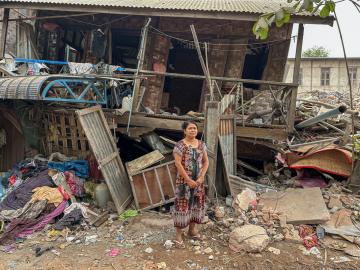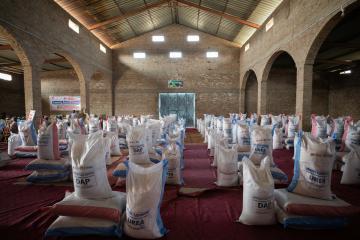
Myanmar Earthquake: How DEC charities are helping
By
Samuel Gard
25 September 2025
25 September 2025
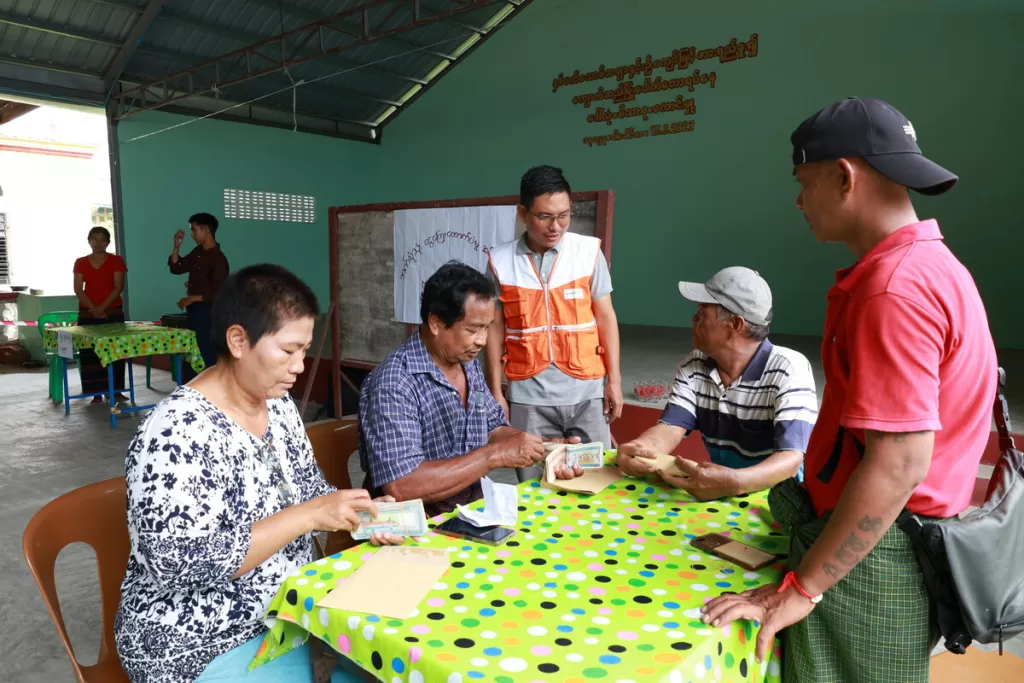
World Vision's Project Coordinator for the DEC Project, meets with and encourages families affected by the earthquake during a cash distribution event. Image: World Vision
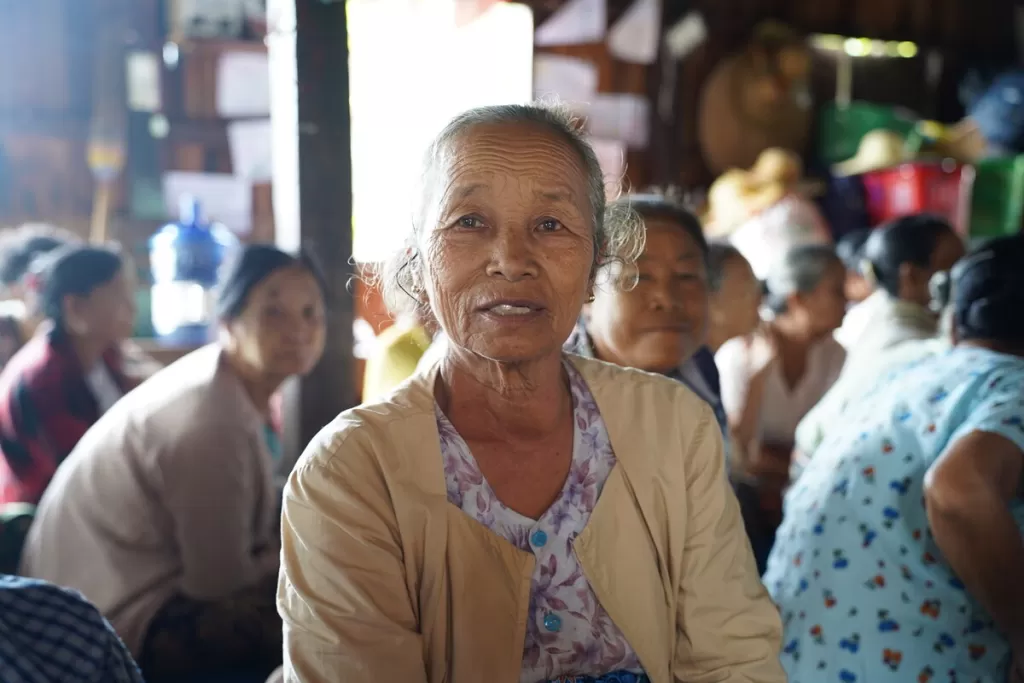
Daw Than Yin, 69, attends a multipurpose cash distribution event for earthquake-affected communities in her village in Inle Lake, Myanmar, 26 June 2025. Image: World Vision
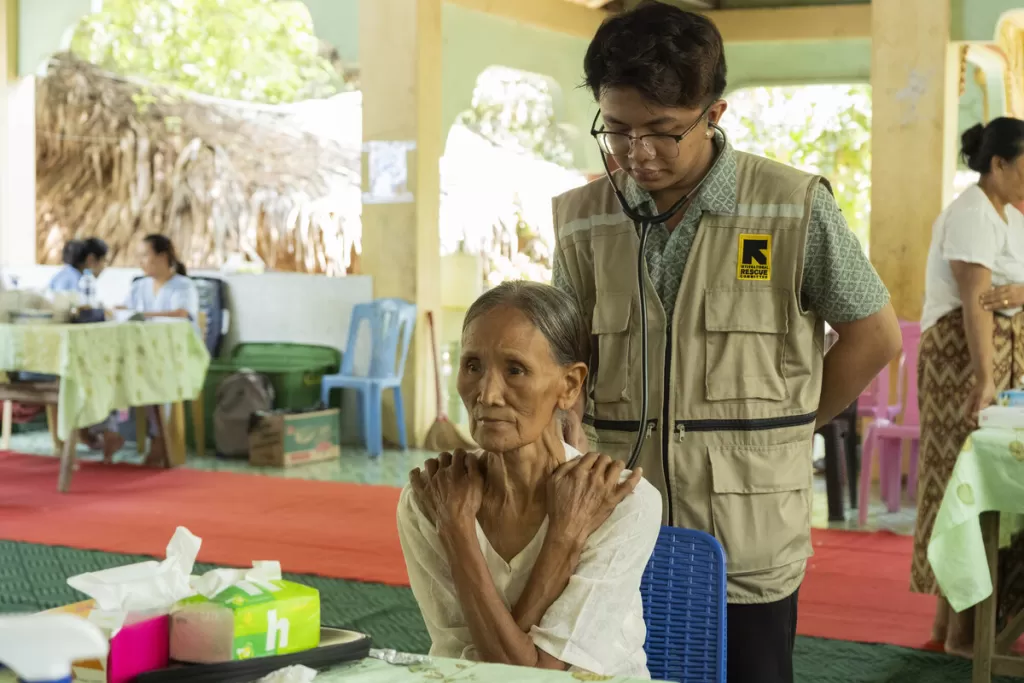
Daw Win Kyi receives treatment at a mobile health clinic run by International Rescue Committee in Myanmar, 1 May 2025. Image: Rita Khinn / Fairpicture / DEC
